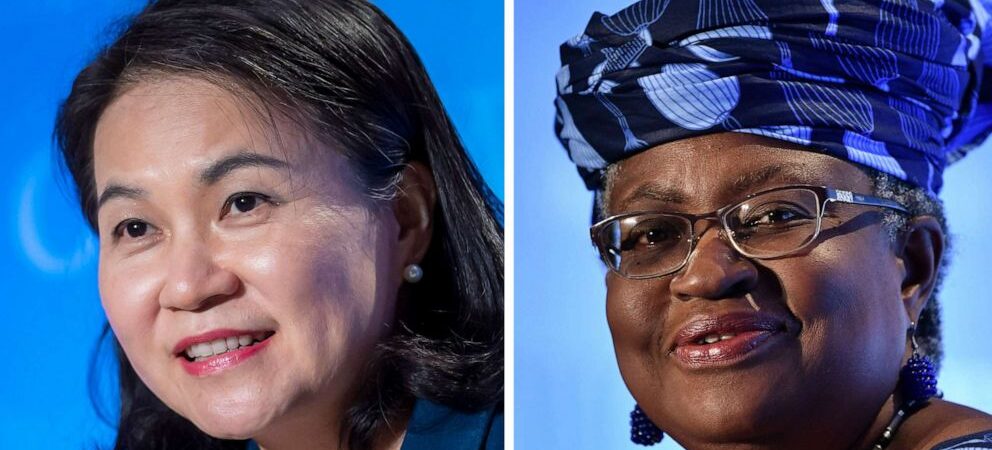The United States and members of the World Trade Organization (WTO) are selecting new leadership for the WTO Secretariat, following Director-General (DG) Roberto Azevêdo’s unexpected resignation in August 2020, a year before his term’s end. Eight candidates were in the running, and WTO members narrowed the field to five in September after the first round of consultations. On October 8, Nigeria’s Ngozi Okonjo-Iweala and South Korea’s Yoo Myung-hee advanced after the second round as the top candidates with the “broadest and deepest support from the membership,” paving the way for the first woman to serve as WTO DG. The process requires all 164 WTO members to agree by consensus on the new DG appointment. WTO members and observers view the outcome of the DG race and fresh leadership as important to inject new momentum into the institution, amid efforts to salvage its relevance and chart a path forward. In the current race, analysts have variously called for an “honest broker” and dealmaker, politician over technocrat, or a “peacekeeper.” WTO leadership may be particularly critical at this juncture, given members’ divergent views over needed reforms and new rules, a nonfunctioning dispute settlement system, and a recent spike in unilateral trade actions, which threaten the organization’s legitimacy. The intensive selection process, usually lasting nine months, has been expedited to conclude possibly by early November following the U.S. presidential election.
The WTO and global trading system face significant challenges. The WTO’s credibility hinges on the conclusion of outstanding negotiations, set back by the postponement of the 2020 Ministerial Conference, due to the Coronavirus Disease 2019 (COVID-19) pandemic. Meanwhile, a dispute settlement crisis continues and broader WTO reforms remain under discussion, complicated by wide differences, growing trade disputes, and trade protectionism. In the near-term, WTO members face additional challenges in responding to the global trade and economic slowdown and spread of trade restrictions in response to COVID-19. In the words of the outgoing DG: “The challenges facing the work of this Organization will always be formidable — commensurate with its relevance and role as an anchor of predictability and certainty in a fast-changing global economy.”
Debate over the WTO’s future direction is of interest to Congress. Some Members have expressed support for ongoing WTO reform efforts (H.Res. 746) and advocated for an active U.S. leadership role (S.Res. 651). In May, Senator Hawley and Representatives DeFazio and Pallone introduced joint resolutions (S.J.Res. 71, H.J.Res. 89) proposing to withdraw congressional approval of WTO agreements; rule changes are likely to prevent votes from occurring on the measures.
IN11463Cathleen D. Cimino-Isaacs is an analyst in International Trade and Finance at the Congressional Research Service.
To read the full report, click here.

